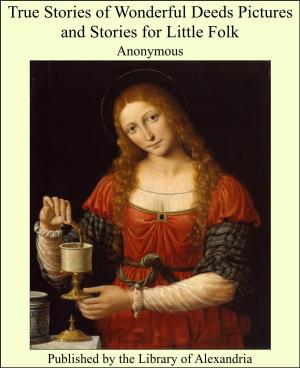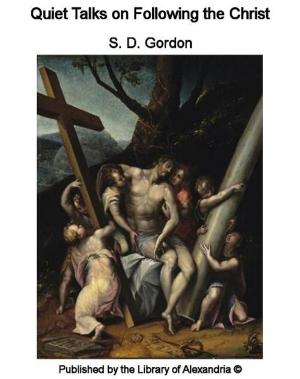Voyages and Travels of Count Funnibos and Baron Stilkin
Nonfiction, Religion & Spirituality, New Age, History, Fiction & Literature| Author: | William Henry Giles Kingston | ISBN: | 9781465597045 |
| Publisher: | Library of Alexandria | Publication: | March 8, 2015 |
| Imprint: | Language: | English |
| Author: | William Henry Giles Kingston |
| ISBN: | 9781465597045 |
| Publisher: | Library of Alexandria |
| Publication: | March 8, 2015 |
| Imprint: | |
| Language: | English |
The men were all dressed as sailors—a brown knitted waistcoat and wide knickerbockers tied at the knees, thick black or blue woollen stockings, and wooden sabots or shoes, These sabots, the Count and the Baron observed, were taken off when the men entered a hut, so that it could be known how many people were inside by the number of sabots at the door. The women wore brown or chintz waistcoats, and short dark petticoats; many of them had their hair hanging down on either side of the face in long thick curls; their head-dresses were high white caps rounded at the summit and lined with some coloured material. As he spoke an old lady got up and welcomed the travellers. She wore the dress which has been described, especially clean and picturesque, and in addition several gold ornaments. The cottage contained many marks of thrift; two carved oaken wardrobes stood one on either side, there was a clock of elaborate workmanship, and china plates of a curious pattern. A cheerful fire burned on the hearth, and the ancient fisherman’s wife soon busied herself with her highly-polished pots and pans in preparing a meal, the very odour of which made the Baron’s mouth water. Freshly-caught fish and a stew with potatoes and vegetables were quickly ready, and the Baron did ample justice to each dish placed on the table. The ancient fisherman informed them that the population of the island was about nine hundred; the men are all fishers, and pass the greater portion of their days on the water. On Sunday night, or rather as soon as Monday is commenced, the whole population go down to the port; the men embark in their boats, put to sea, and pass the week in fishing. The women return to their daily avocations till another Saturday afternoon comes round, when the men return home for their day of rest.
The men were all dressed as sailors—a brown knitted waistcoat and wide knickerbockers tied at the knees, thick black or blue woollen stockings, and wooden sabots or shoes, These sabots, the Count and the Baron observed, were taken off when the men entered a hut, so that it could be known how many people were inside by the number of sabots at the door. The women wore brown or chintz waistcoats, and short dark petticoats; many of them had their hair hanging down on either side of the face in long thick curls; their head-dresses were high white caps rounded at the summit and lined with some coloured material. As he spoke an old lady got up and welcomed the travellers. She wore the dress which has been described, especially clean and picturesque, and in addition several gold ornaments. The cottage contained many marks of thrift; two carved oaken wardrobes stood one on either side, there was a clock of elaborate workmanship, and china plates of a curious pattern. A cheerful fire burned on the hearth, and the ancient fisherman’s wife soon busied herself with her highly-polished pots and pans in preparing a meal, the very odour of which made the Baron’s mouth water. Freshly-caught fish and a stew with potatoes and vegetables were quickly ready, and the Baron did ample justice to each dish placed on the table. The ancient fisherman informed them that the population of the island was about nine hundred; the men are all fishers, and pass the greater portion of their days on the water. On Sunday night, or rather as soon as Monday is commenced, the whole population go down to the port; the men embark in their boats, put to sea, and pass the week in fishing. The women return to their daily avocations till another Saturday afternoon comes round, when the men return home for their day of rest.















